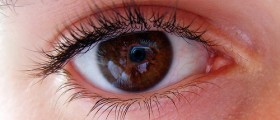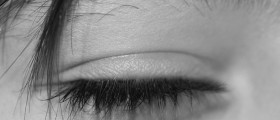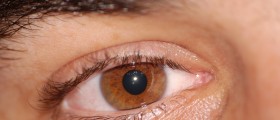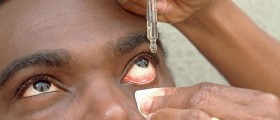
Night blindness (medically known as nyctalopia) is a condition characterized by reduced ability or complete inability of one to see in relatively low light. People suffering from night blindness cannot see objects clearly during nighttime or dimly lighted room. This health issue is closely related to several eye diseases. Night blindness either exists from birth or it is acquired.
Night Blindness Causes
The major contributor to night blindness is vitamin A deficiency. Vitamin A (retinol) is essential for maintaining specific cells of the retina and its lack is closely related to problems with vision. In many cases malnutrition is responsible for inadequate intake of vitamin A, but such vitamin deficiency may also affect people who eat normally but do not consume enough foods containing vitamin A.
Furthermore, night blindness may also develop in people suffering from retinitis pigmentosa, a specific degeneration of the retina.
Another condition characterized by night blindness is Refsum's disease. This medical conditions primarily affects the brain and motor functions and apart from night blindness there are many different symptoms such as deafness, weakness, balance and coordination problems. Apart from acquired night blindness some individuals are born with the condition i.e. are suffering from congenital stationary night blindness.
Night Blindness Clinical Characteristics
All symptoms of the disease are connected with the inability of the eyes to properly adapt to changes in illumination. The very name suggests that the affected individuals cannot see at night or dimly lighted room.
Patients may additionally complain about headache, dry eyes and blurred vision.
Night Blindness Treatment
Some people may benefit from eye drops which allow their eye to adequately accommodate when daylight is replaced with nighttime. However, if there is vitamin A deficiency, this accommodation is simply impossible. In order to treat vitamin A deficiency and associated night blindness, people have to take vitamin A supplements. A simple increase in intake of food containing vitamin A is not sufficient enough to correct the deficiency.
If night blindness is caused by some underlying conditions, once these are brought under control, the issue of night blindness soon withdraws.
Finally, there is no cure to congenital night blindness.
Night Blindness Prevention
The best thing one can do if he/she does not suffer from congenital night blindness and wants to prevent the condition from occurring is to have a well-balanced diet, rich in all the essential nutrients, vitamins and minerals. Proper intake of vitamin A is one preventive measure against night blindness.
If the problems originates from other medical conditions, it can be prevented only if the specific condition that leads to night blindness is preventable.Congenital night blindness, unfortunately, cannot be prevented.
- www.ncbi.nlm.nih.gov/books/NBK545246/
- www.britannica.com/science/night-blindness
- Photo courtesy of Adriano Aurelio Araujo by Flickr: www.flickr.com/photos/9561484@N06/1484535127/














-In-Infants-And-Older-Children_f_280x120.jpg)


Your thoughts on this
Loading...